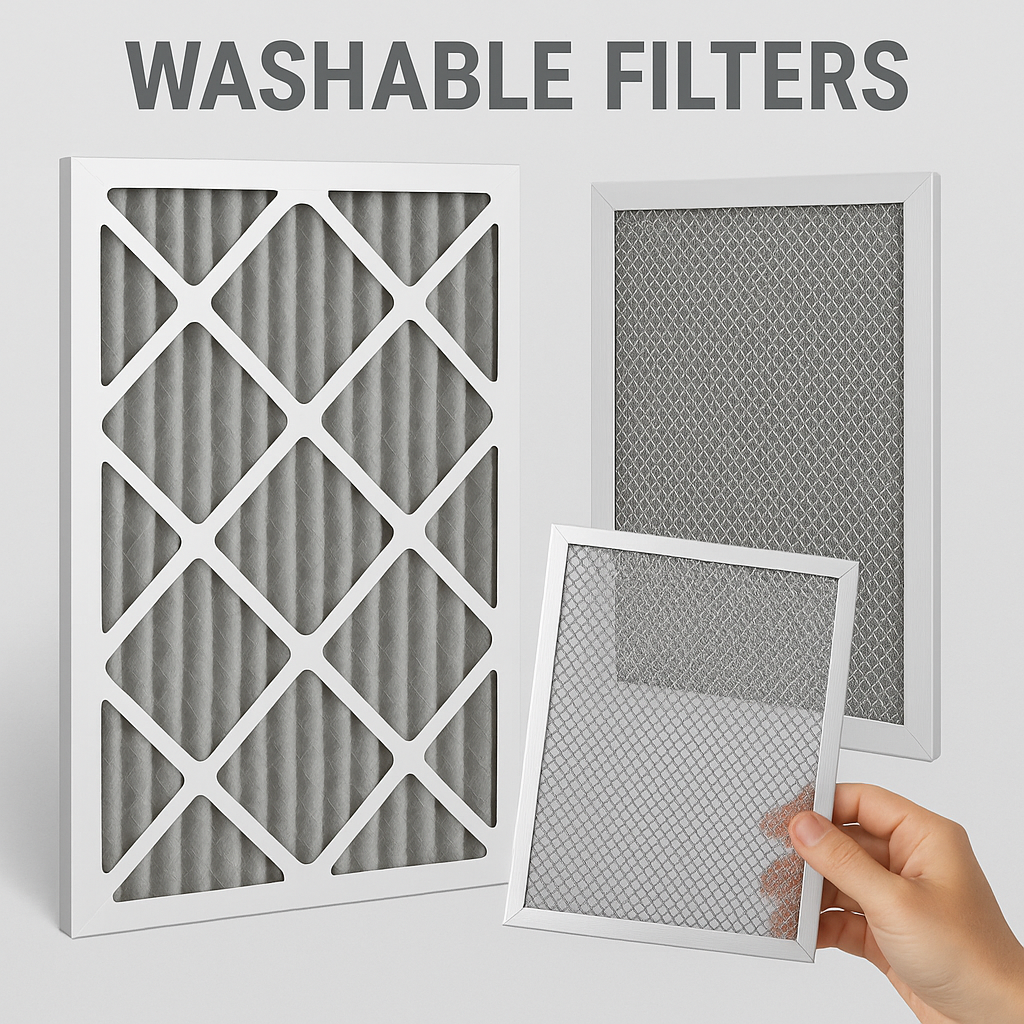Are Washable Filters Worth the Investment? Pros & Cons

Choosing the right air filter for your home or workplace isn’t just about keeping the air clean — it’s also about saving money, reducing waste, and keeping your HVAC system running smoothly. One option more people are considering today is washable filters. These reusable filters offer an alternative to the traditional disposable ones that need replacing every few months.
But are they really worth the investment? That’s the big question. In this blog, we’ll weigh the pros and cons to help you decide if switching to washable filters is the right choice for your space and budget.
What Are Washable Filters?
Washable air filters, also known as reusable filters, are designed to be cleaned and reused rather than thrown away. They’re typically made with a metal or plastic frame and a filter media that can withstand repeated washing without breaking down. These filters are commonly used in HVAC systems, air purifiers, and even some automotive applications. Instead of tossing them out after 1-3 months like disposable filters, you can clean them regularly — usually by rinsing with water and letting them dry before reinstalling.
Some are electrostatic, meaning they use static electricity to trap particles, while others rely on a dense mesh to catch dust and debris. The cleaning process varies slightly depending on the design, but the idea is simple: wash, dry, reuse.
Pros of Using Washable Filters
There are several clear advantages to using washable filters, especially when looking at long-term use.
1. Cost Savings Over Time
While reusable filters typically cost more upfront, they can save money in the long run. Instead of buying a new filter every few months, you reuse the same one for several years. If maintained properly, some can last five years or more. That’s a noticeable reduction in replacement costs, especially for larger buildings or households with multiple air systems.
2. Environmentally Friendly
Throwing out used filters every quarter adds to landfill waste. Washable filters significantly reduce this problem by staying out of the trash. Fewer filters produced and disposed of means less strain on the environment. If you’re trying to reduce your carbon footprint or adopt more sustainable habits, this is one practical change that can help.
3. Convenience and Storage
It can be a hassle to keep track of when to replace disposable filters and always have extras on hand. With a washable option, once you’ve bought it, you don’t need to worry about stocking spares. You also avoid last-minute trips to the hardware store or delayed maintenance just because a replacement filter isn’t available.
Cons of Using Washable Filters
Despite the benefits, there are some drawbacks to consider before making the switch.
1. Higher Initial Cost
The upfront price of a washable filter is typically two to three times higher than a disposable one. For some people, that can be a turn-off — especially if they’re not sure how long they’ll stay in the same place or use the same system. If you’re on a tight budget or prefer lower short-term expenses, this may be a hurdle.
2. Regular Cleaning Required
Reusable filters only work well if you commit to keeping them clean. That means removing the filter, washing it with water (and sometimes mild detergent), allowing it to dry fully, and reinstalling it. If you forget or delay cleaning, the filter can clog up, which reduces airflow and hurts the performance of your HVAC system. In some cases, a neglected washable filter can even cause indoor air quality to drop.
3. Drying Time Is Crucial
After washing, the filter must be completely dry before it’s put back in place. Installing a damp filter can lead to mold growth inside the system, which causes more harm than good. This means you need to allow time — often overnight — for the filter to dry, or have a backup filter ready while one is drying.
When to Stick with Disposable Filters
On the other hand, you may be better off with disposable filters if:
- You don’t have the time or space to clean and dry filters
- Your system requires high-efficiency filtration (like HEPA or MERV 13+)
- You live in a high-pollution area or have pets, allergies, or respiratory issues.
- You prefer a maintenance-free approach to air quality.
Disposable filters are more widely available in different sizes and ratings, and they offer convenience with little effort.
Final Thoughts
Switching to washable filters has clear benefits for people looking to save money, reduce waste, and take control of their indoor air quality. These filters can be a smart long-term investment — as long as you’re committed to keeping them clean and dry. They’re not the best solution for every situation, especially where high-level filtration is needed or convenience is a top priority. But in many homes and offices, reusable filters strike a good balance between performance and sustainability.




